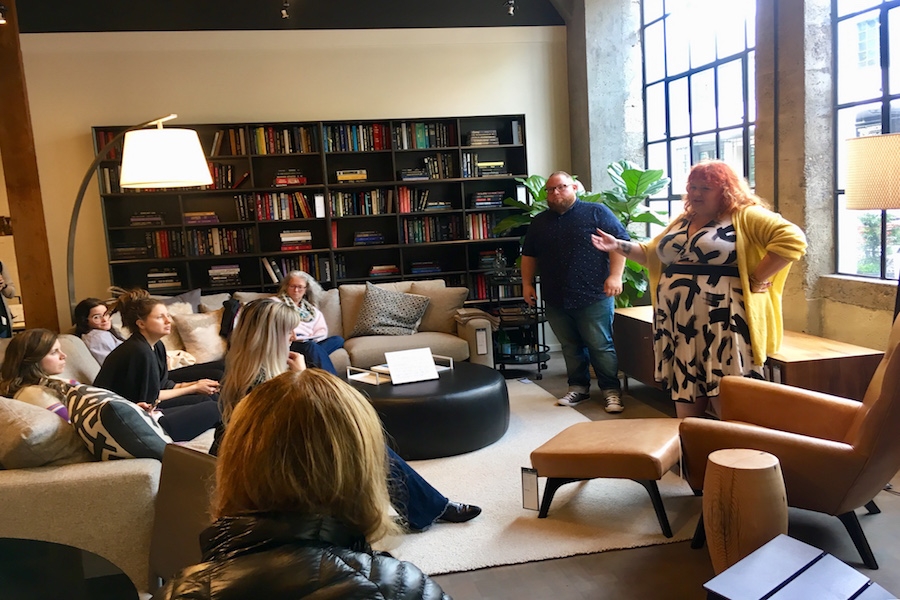Fat activists discuss inclusive design during Design Week Portland.
Inside Room & Board, a Pearl District furniture store, Rebecca Alexander delivered a lengthy discourse on chair design.
The ideal chair height, evidently, is 18 inches off the ground. The seat should be firm, but not brittle. Arms are okay, if they’re set back far enough from the seat. Pitch matters too — chairs titled forward or backward are bad news.
Those are all design features Alexander considers daily. She founded a startup, AllGo, which she describes as “Yelp for fat people.” The consumer-generated review platform, a Pitch Fest NW finalist, will launch its beta test in Portland this summer.
“You realize that when you start getting larger your world gets smaller,” Alexander told a small crowd of apparel designers, marketers and others gathered for the event, which featured discussions on designing for fat people. “I spent a lot of time scrolling through reviews and looking at pictures just to see if I could sit down in a restaurant.”
Alexander’s girth discourages her from going to many popular restaurants and venues, like the Arlene Schnitzer Concert Hall. She hopes AllGo— where users can post pictures and reviews of overlooked features like the structural integrity of chairs — will change that.
“You realize that when you start getting larger your world gets smaller,” Alexander says.
Dining out isn’t the only problem. Size discrimination is pervasive in the workplace, but is often absent from corporate equity discussions.
Fat people face barriers to landing jobs, raises and promotions, explained Shilo George, owner of Lush Kumtux Tumtum consulting. Fat women make 16% less than thin women. In one University of Connecticut study, 54% of participants reported “weight stigma” from coworkers.
The discrimination can become institutionalized in some ill-designed corporate wellness programs. A Whole Foods program, for example, came under fire in Oregon in 2012 for tying employees’ discounts to their body mass indices. At least Oregon is no Alabama, where in 2008 the state floated a plan to tax fat employees to balance out insurance costs.
Fat people don’t count as a protected class under federal labor law, George says. That makes it hard to find legal help and report discrimination. Some independent groups, like the National Association for the Advancement of Fat Acceptance, offer resources and advocacy.
To subscribe to Oregon Business, click here.






